1 Chronicles 23 meaning explained in AI Summary
This chapter focuses on the organization and division of the Levites under the reign of King David.
Here are the key points:
- David's age and succession: David, now old and nearing the end of his reign, appoints his son Solomon as king (v.1).
- Levites numbered: The Levites, relieved from their temple duties due to their age (30 years and above), are numbered. There are 38,000 in total (v. 3-5).
- Levitical divisions: David divides the Levites into different groups with specific responsibilities:
- 24,000 are assigned to oversee the work of the temple (v. 4).
- 6,000 are appointed as officers and judges (v. 4).
- 4,000 are gatekeepers (v. 5).
- 4,000 are musicians, praising the Lord with instruments made by David (v. 5).
- Descendants of Levi: The chapter details the lineage of Levi through his sons Gershon, Kohath, and Merari (v. 6-23).
- Duties assigned by families: David assigns specific duties to the different families within the Levite tribes, ensuring a structured and organized system for temple service (v. 24-32).
Overall, 1 Chronicles 23 highlights David's meticulous planning for the smooth functioning of the temple and its services. He ensures the Levites, relieved from their duties due to age, are still honored and involved. This chapter emphasizes the importance of order, structure, and lineage in the worship of God.
1 Chronicles 23 bible study ai commentary
The central theme of 1 Chronicles 23 is the transition from mobile worship in the wilderness to established worship in the Promised Land. David, as a prefigurement of the ultimate Shepherd-King, prepares for this new era by reorganizing the Levitical priesthood. No longer tasked with the physical burden of carrying the Tabernacle, their roles are redefined for the service of the permanent Temple, focusing on administration, justice, security, and, most prominently, organized praise and worship. This chapter establishes the divine order and sacred structure that would define Israel's liturgical life for centuries.
1 Chronicles 23 context
This chapter is set at the very end of David's reign, around 971 BC. Israel has achieved a period of unprecedented peace and national security, which the Bible calls "rest" (hēnîaḥ). This "rest" was a precondition for building a permanent House for God (Deut 12:10-11). Though forbidden from building the Temple himself (1 Chr 22:8), David dedicates his final days to preparing everything for his son Solomon: materials, plans, and personnel. The Ark of the Covenant is already in a tent in Jerusalem (2 Sam 6:17). The Chronicler, writing to the post-exilic community rebuilding the second Temple, presents David's actions as the foundational blueprint, giving divine authority and historical legitimacy to the Temple organization and Levitical roles of his own day.
1 Chronicles 23:1-2
When David was old and full of days, he made Solomon his son king over Israel. And he gathered together all the leaders of Israel, with the priests and the Levites.
In-depth-analysis
- This verse establishes the context: a transfer of power during a time of stability ("old and full of days"). The Chronicler presents Solomon's ascension as a smooth, deliberate act ordained by David, contrasting with the chaotic political struggle detailed in 1 Kings 1-2 involving Adonijah.
- The gathering of all leaders signifies a national covenant or consensus. David’s authority is central; he is not just appointing a king but organizing the entire religious and civil structure of the nation for the future. This act establishes the king's role as a guardian of the nation's worship.
Bible references
- 1 Kgs 1:1, 32-40: 'King David was old and advanced in years... and he said, "Call to me Zadok the priest..."' (Shows the more complex political reality of Solomon's accession, which the Chronicler simplifies).
- 1 Chr 28:1: 'David assembled at Jerusalem all the officials of Israel...' (Describes a later assembly to publicly present the temple plans).
- Ps 72:1-2: 'Give the king your justice, O God... May he judge your people with righteousness...' (A psalm for a king, reflecting the ideal role Solomon was to fill).
Cross references
Deut 17:18-20 (King's duty to uphold the law); 1 Chr 22:9-10 (Promise of Solomon); 1 Chr 29:22 (Solomon's second anointing).
Polemics
The Chronicler intentionally omits the story of Adonijah's attempted coup. His goal is not to provide a messy political history but to present an idealized portrait of a smooth, divinely-ordered transition. He portrays David's last acts as entirely focused on establishing a holy and ordered kingdom centered on worship, providing a model for the post-exilic community.
1 Chronicles 23:3-5
The Levites were numbered from the age of thirty years and upward, and their number by headcount, man by man, was 38,000. “Of these,” David said, “24,000 are to oversee the work of the house of the LORD, 6,000 are to be officers and judges, 4,000 are to be gatekeepers, and 4,000 shall be singers of praise to the LORD with the instruments that I have made for praise.”
In-depth-analysis
- The Census: The numbering (census) of Levites echoes the censuses in the book of Numbers. However, this is not for military purposes but for temple service organization. The starting age of 30 reflects the traditional requirement for full Levitical service.
- Division of Labor: The roles demonstrate that the Levites formed the religious and civil service of Israel under the monarchy.
- 24,000 Overseers: This large number suggests they were divided into 24 courses (as the priests are in the next chapter), ensuring continuous, orderly supervision of all temple activities. This is about administration, not just physical labor.
- 6,000 Officers and Judges: (šōṭərîm wəšōp̄əṭîm). They managed civil administration and local courts throughout the land, applying God's law to daily life.
- 4,000 Gatekeepers: More than just sentries, they were responsible for the ritual purity of the sacred space, preventing anything unclean from entering the temple precincts.
- 4,000 Musicians: Praise is elevated to a primary, official function, not an afterthought. David himself institutionalizes and even crafts the instruments for this massive choir and orchestra. Worship through music becomes a central pillar of Temple service.
Bible references
- Num 4:3, 47: 'from thirty years old up to fifty years old, all who could come to do the work of service... their number was 8,580.' (Shows the original age requirement and much smaller numbers for wilderness tabernacle service).
- 1 Chr 24:1-19: Details the 24 courses of priests, mirroring the 24,000 Levite overseers.
- 2 Chr 29:25-26: 'And he stationed the Levites in the house of the LORD with cymbals, harps, and lyres, according to the commandment of David...' (Hezekiah reinstitutes this musical order, showing its lasting authority).
- Neh 11:22-23: Shows the continuation of this system post-exile, with a "commander's edict concerning the singers, setting out their daily duties."
Cross references
Deut 16:18 (Appointing judges and officers); 2 Chr 8:14 (Solomon implements David's divisions); 1 Chr 15:16 (Levites appointed as singers); Rev 4:4 (24 elders around the throne, perhaps an echo of the earthly 24 divisions of priests and Levites).
1 Chronicles 23:6-23
And David divided them into divisions according to the sons of Levi: Gershon, Kohath, and Merari... (The text then provides a detailed genealogy of the heads of the ancestral houses for each of the three main Levitical clans.)
In-depth-analysis
- This lengthy genealogical section serves a crucial purpose for the Chronicler: establishing legitimacy. Only those with a proven Levitical lineage are qualified for temple service.
- The lists demonstrate continuity with the nation's origins in Exodus and Numbers, reinforcing that this new organization is not an arbitrary invention but a new application of God's ancient choice of the tribe of Levi.
- Verse 13: "Aaron was set apart to consecrate the most holy things." This is a critical distinction. While all priests are Levites, not all Levites are priests. The priesthood is restricted to the descendants of Aaron within the Kohathite clan. The other Levites assist them.
- Verse 14: The sons of Moses, the "man of God," are counted among the ordinary Levites, not given a special priestly status. This serves a polemical purpose: it magnifies the Aaronic priesthood and prevents any claim to a hereditary "Mosaic" priesthood, keeping leadership within the designated line.
Bible references
- Exod 6:16-25: 'These are the names of the sons of Levi according to their generations: Gershon, Kohath, and Merari...' (The foundational genealogy that Chronicles is building upon).
- Num 3:17-39: Details the clans, their numbers, and their specific duties related to carrying the tabernacle.
- Num 16:8-10: 'Hear now, you sons of Levi: is it too small a thing for you that the God of Israel has separated you... to bring you near to himself?' (Moses affirms the special status, yet subordinate role, of the Levites).
- Heb 5:4: 'And no one takes this honor for himself, but only when called by God, just as Aaron was.' (Affirms the principle of divine appointment for the priesthood).
Cross references
1 Chr 6:1-81 (A more detailed Levitical genealogy); Ezra 2:61-62 (Post-exilic priests excluded for lacking genealogical records); Neh 12:24 (Heads of Levites post-exile).
1 Chronicles 23:24-27
These were the sons of Levi by their fathers' houses, the heads of fathers' houses as they were listed according to the number of the names of the individuals from twenty years old and upward who were to do the work for the service of the house of the LORD. For David said, “The LORD, the God of Israel, has given rest to his people, and he dwells in Jerusalem forever. And so the Levites no longer need to carry the tabernacle or any of the things for its service.” For by the last words of David the Levites were numbered from twenty years old and upward.
In-depth-analysis
- Change in Age: This is a major development. The age is lowered from 30 (v. 3, based on Numbers 4) to 20. Verses 25-27 provide the explicit theological and practical reason for the change.
- Theology of Rest: David’s key statement is that God has given "rest" (hēnîaḥ) to Israel and now "dwells in Jerusalem forever." This rest from enemies and wandering is the fulfillment of God's promise.
- New Purpose: Because the Ark and Tabernacle are now stationary, the primary function of the Levites—heavy transport—is obsolete. Their physical prime is less important than their availability for a wider range of services. Lowering the age expands the pool of available workers for the new tasks.
- "Last words of David": This phrase gives the change supreme authority. It's not a temporary rule but David's final, binding command for the future Temple era, spoken with prophetic insight.
Bible references
- Deut 12:10-11: 'But when you go over the Jordan and live in the land... and when he gives you rest... then to the place that the LORD your God will choose... you shall bring all that I command you.' (The foundational promise now fulfilled).
- Num 8:24-25: 'This is what applies to the Levites: from twenty-five years old and upward they shall come to do duty in the service of the tent of meeting.' (Note: This text says 25, while Numbers 4 says 30. David's change to 20 is even more significant, reflecting a new covenant era).
- Heb 4:8-10: 'For if Joshua had given them rest, God would not have spoken of another day later on. So then, there remains a Sabbath rest for the people of God...' (The NT interprets this earthly "rest" in the land as a type, or foreshadowing, of the ultimate spiritual rest found only in Christ).
Polemics
Scholars note the apparent contradiction between age 30 (v. 3) and 20 (v. 27). The most common explanation is that v. 3 refers to David's initial census based on the old Mosaic law, while vv. 24-27 record his final, revised instruction for the new Temple era. The Chronicler presents both to show a thoughtful, divinely-guided process of updating the law for a new context.
1 Chronicles 23:28-32
For their duty, stationed at the hand of the sons of Aaron, was for the service of the house of the LORD... It was also their duty to stand every morning to thank and praise the LORD, and likewise at evening... Thus they were to keep charge of the tent of meeting and the sanctuary, and to attend the sons of Aaron their brothers for the service of the house of the LORD.
In-depth-analysis
- This section details the Levites' new job description. It is a ministry of assistance and maintenance.
- Their station is "at the hand of the sons of Aaron," clearly defining their role as subordinate to and in support of the priests.
- List of Duties:
- Purity: They are responsible for the physical and ritual cleanliness of the temple courts and sacred objects.
- Offerings: They prepare the material for the offerings, including the "bread of the Presence" (showbread), flour for grain offerings, and unleavened wafers.
- Standards: They oversaw the official "weights and measures," ensuring fairness and integrity in both sacred and, likely, civil transactions.
- Praise: This duty is re-emphasized as a daily, core responsibility ("every morning... and likewise at evening"). Perpetual praise is central to the Temple's purpose.
- Festival Support: They assisted during all appointed feasts—Sabbaths, New Moons, and annual festivals—ensuring the larger-scale ceremonies were conducted in an orderly fashion.
- The final verse summarizes their entire mandate: to support the priests and maintain the order of the sanctuary.
Bible references
- Lev 24:5-8: 'You shall take fine flour and bake twelve loaves from it... and put them on the pure table before the LORD.' (The showbread they prepared).
- Num 18:2-3: 'And with you bring your brothers, the tribe of Levi... They shall keep your charge and the charge of the whole tent, but they shall not come near the vessels of the sanctuary or the altar.' (The original mandate to assist the priests).
- Ps 134:1: 'Behold, bless the LORD, all you servants of the LORD, who stand by night in the house of the LORD!' (A psalm reflecting the Levites' round-the-clock service).
- Heb 13:15: 'Through him then let us continually offer up a sacrifice of praise to God, that is, the fruit of lips that acknowledge his name.' (The principle of perpetual praise is spiritualized for the New Covenant believer).
Cross references
Exo 30:11-16 (Temple tax/standards); Num 28-29 (Festival offerings); 1 Chr 9:26-32 (Post-exilic Levite duties).
1 Chronicles Chapter 23 Analysis
- From Movement to Permanence: The chapter's structure is built around the rationale for change: because God has given "rest" and established a permanent dwelling in Jerusalem, the Levites' work must change from carrying to serving, from manual labor to liturgical and administrative service.
- The King as Liturgical Organizer: Chronicles presents David, not a priest, as the one who organizes Israel's worship structure. He acts in a prophetic capacity, establishing an order that lasts for centuries. This legitimizes the monarchy's role in supporting and protecting the cult.
- A "Spiritual" Army: David, a man of war, organizes a spiritual army of 38,000 men. Instead of swords and spears, their weapons are musical instruments, legal statutes, and services of purification. Their battle is to maintain holiness and offer praise.
- Grace and Adaptation: The lowering of the age requirement shows that God's law is not always static and unchangeable. When the conditions of the covenant administration change (e.g., from wandering to rest), the application of the law can be adapted under prophetic authority (David's "last words") to meet the new reality. This is a practical application of theology.
- The Gospel of Organization: For the Chronicler, order (seder) is a reflection of God's own character. Chaos is unholy. By meticulously organizing the servants of the Temple, David is creating a microcosm of God's kingdom on earth, where everything is done "decently and in order" (1 Cor 14:40). This structured worship points toward the perfect order of heaven.
1 Chronicles 23 Summary
In his old age, King David officially appoints Solomon as his successor and undertakes his final major administrative act: the complete reorganization of the Levites. Numbering 38,000 men, they are divided into four main roles: temple overseers, officers and judges, gatekeepers, and musicians. This new structure is necessitated by the "rest" God has given Israel and the coming of the permanent Temple, which makes their former duty of transporting the Tabernacle obsolete. Citing his "last words" as authority, David lowers the age of service from 30 to 20 and provides a detailed charter for their new roles in assisting the priests, maintaining the sanctuary, and leading Israel in perpetual praise.
1 Chronicles 23 AI Image Audio and Video
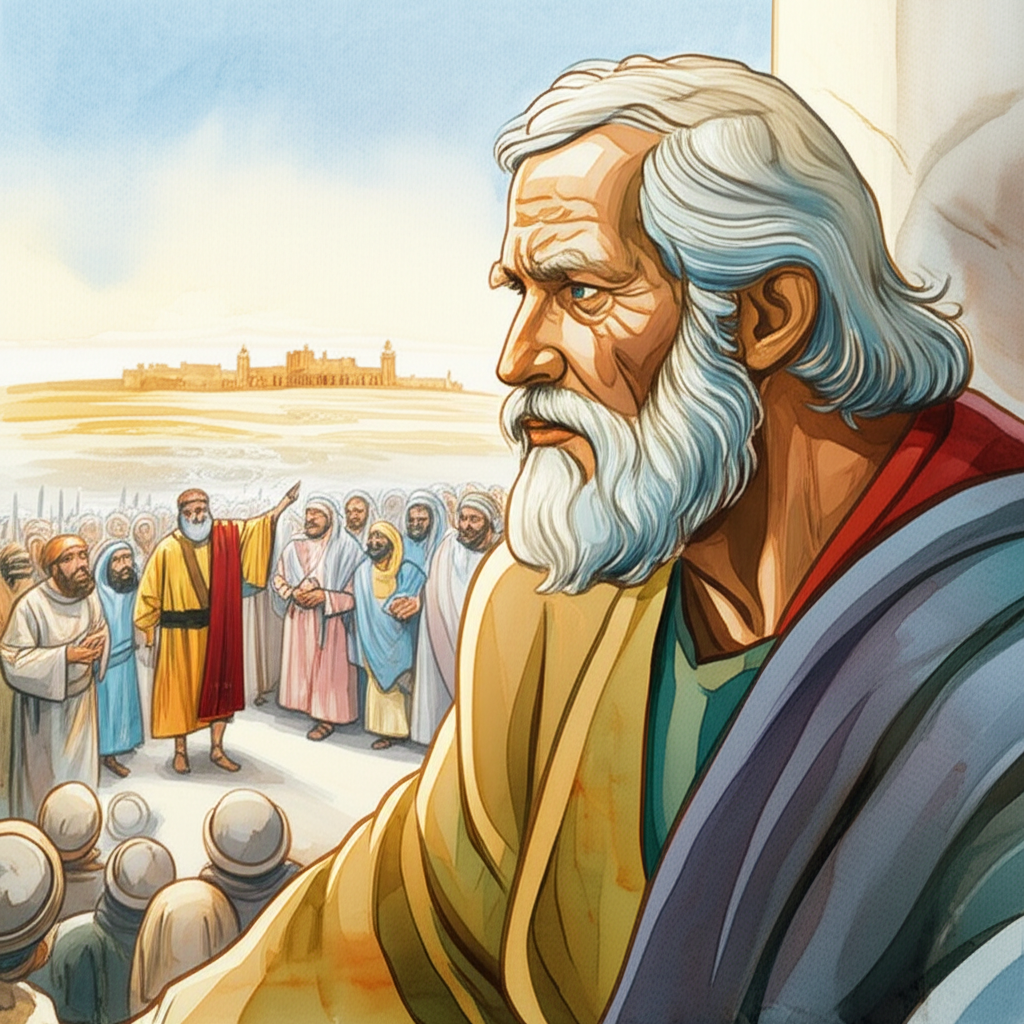

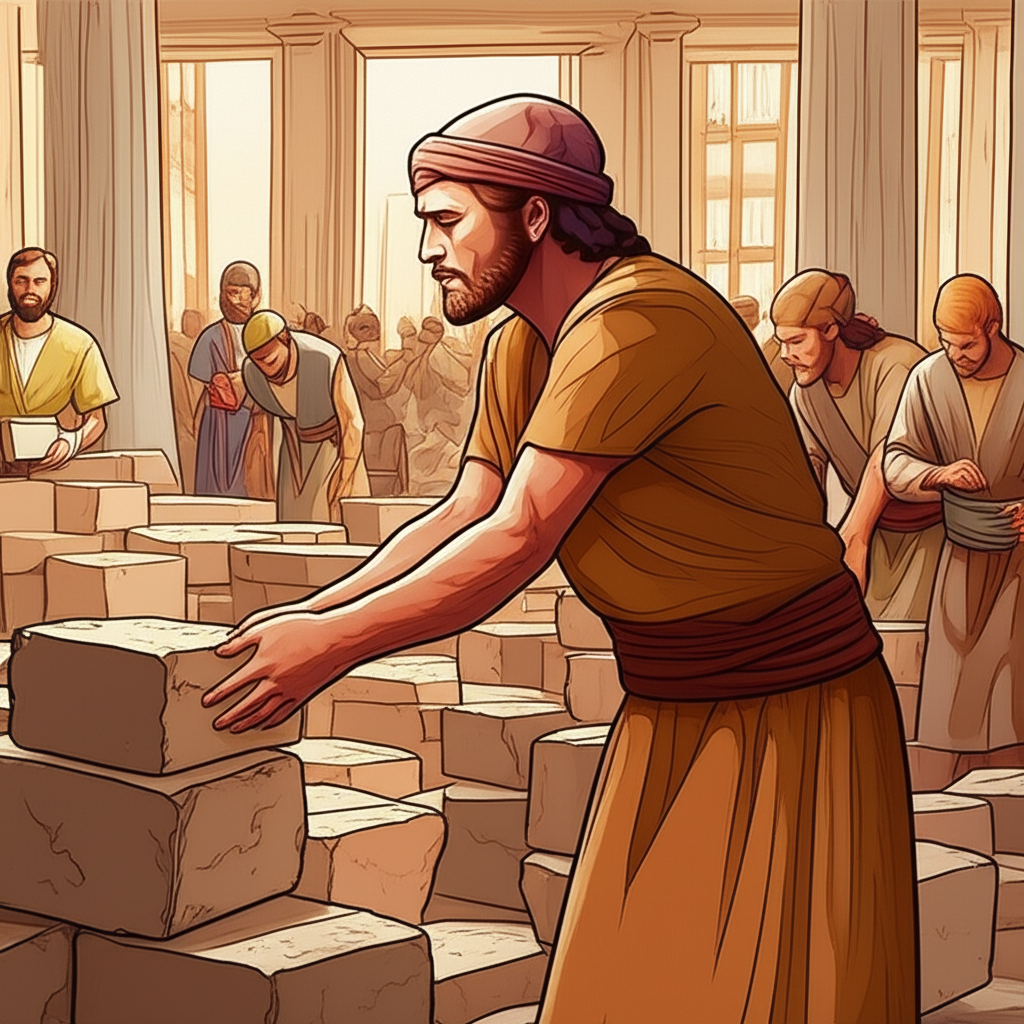
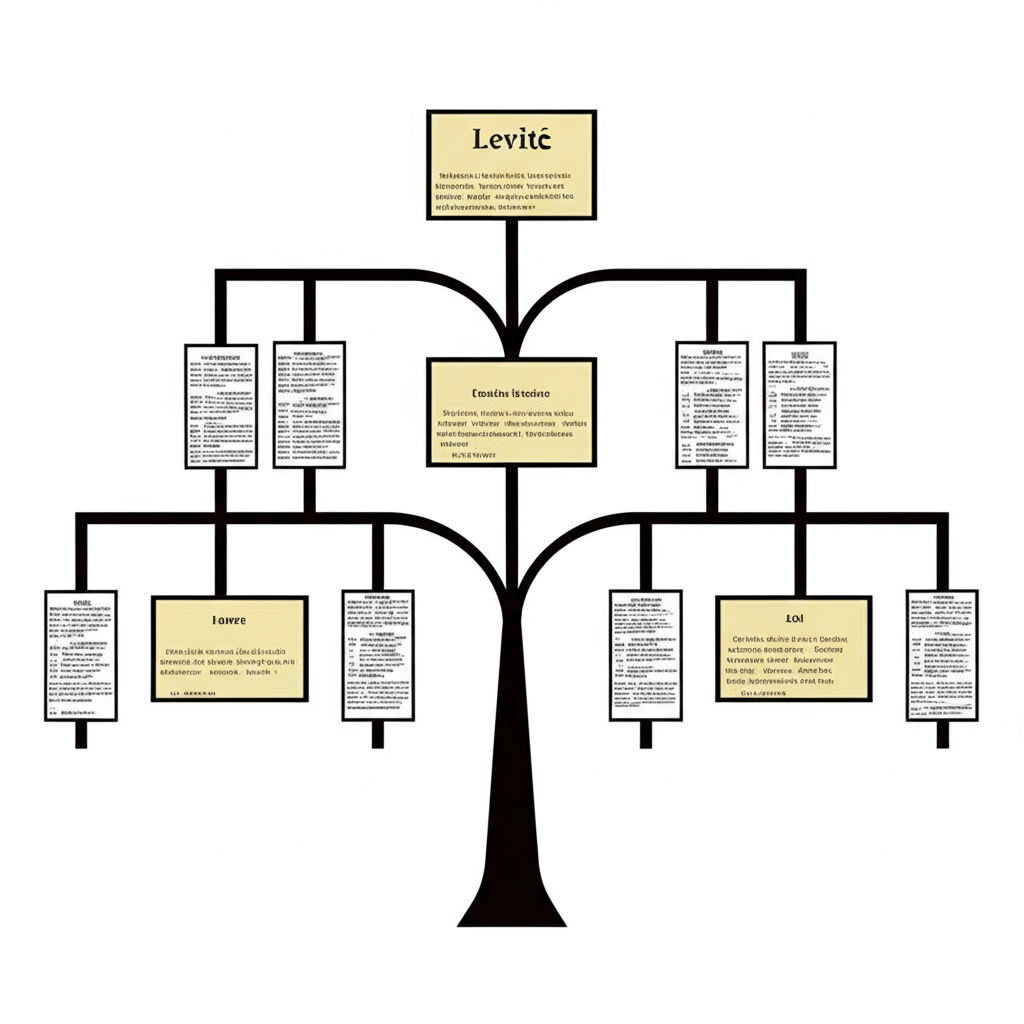

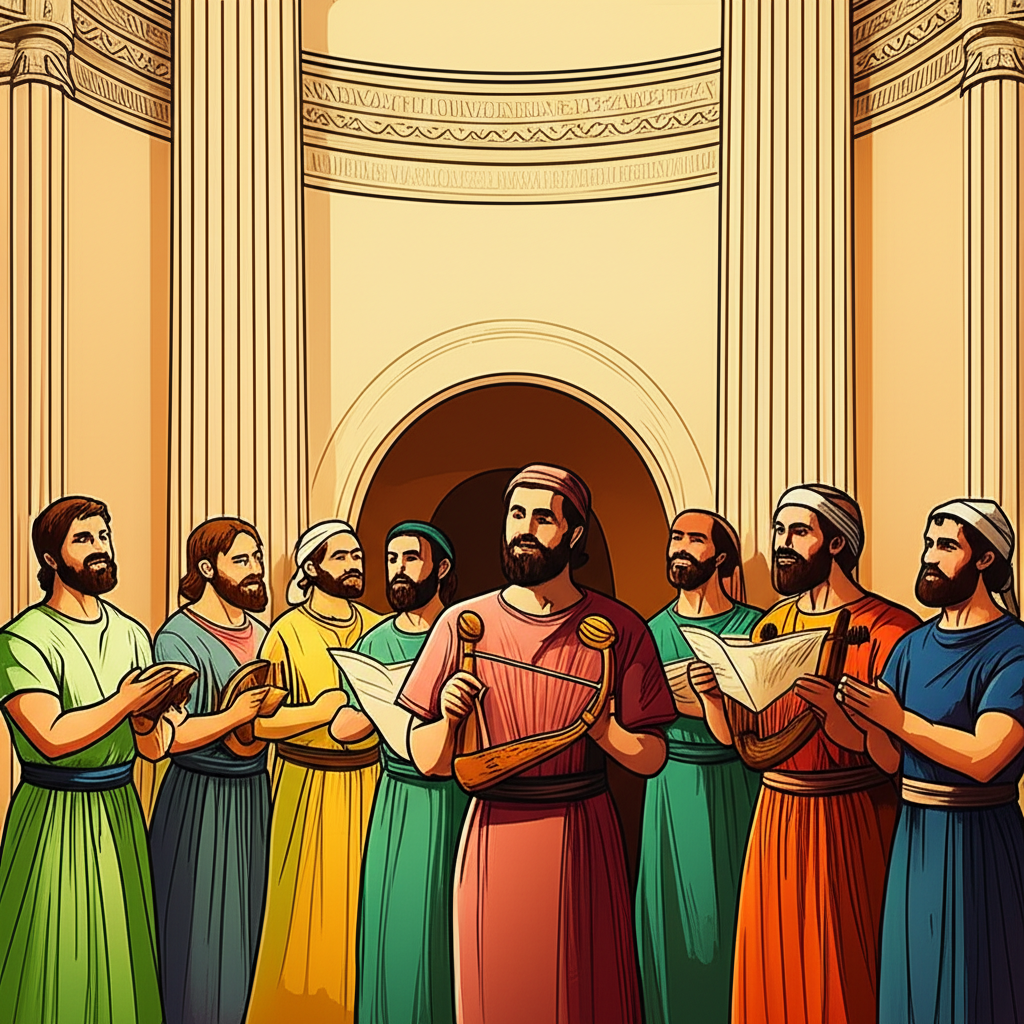
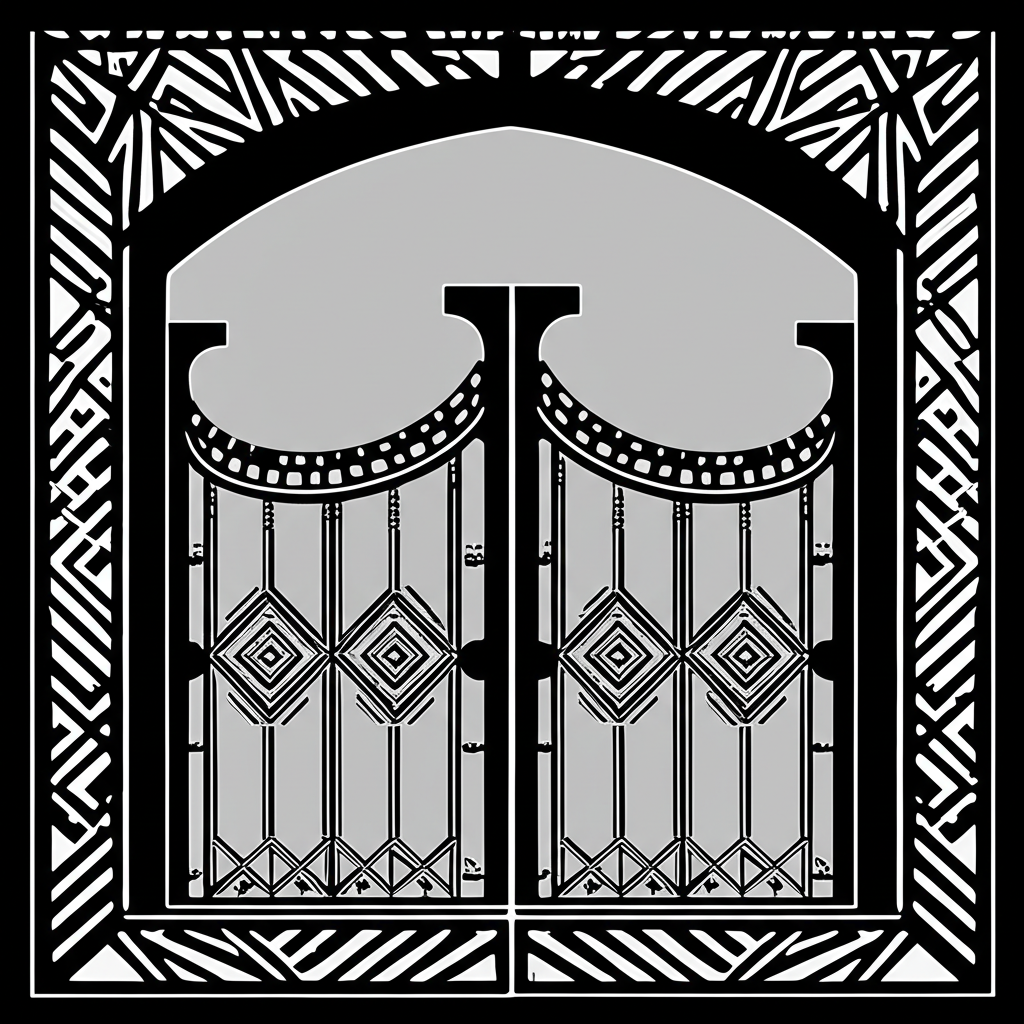
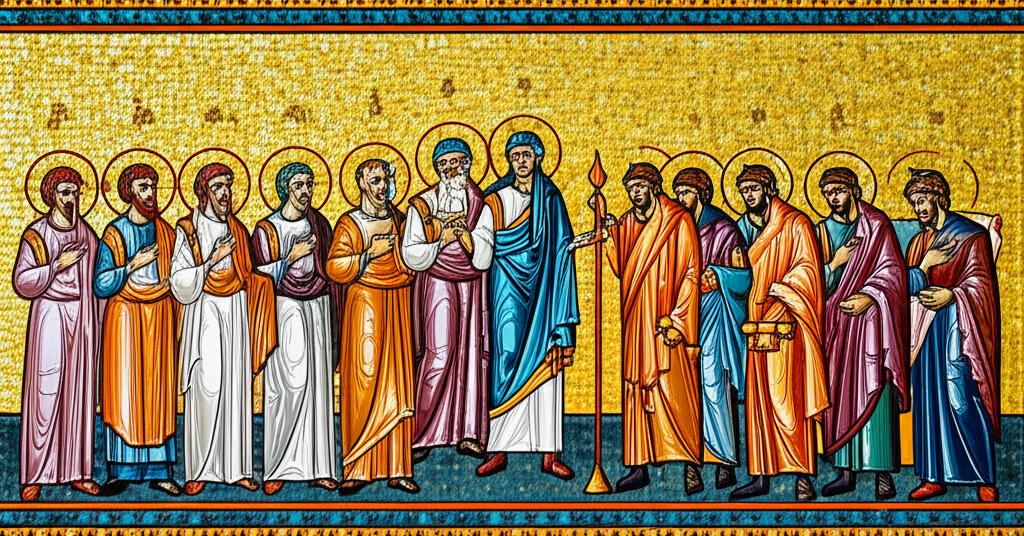
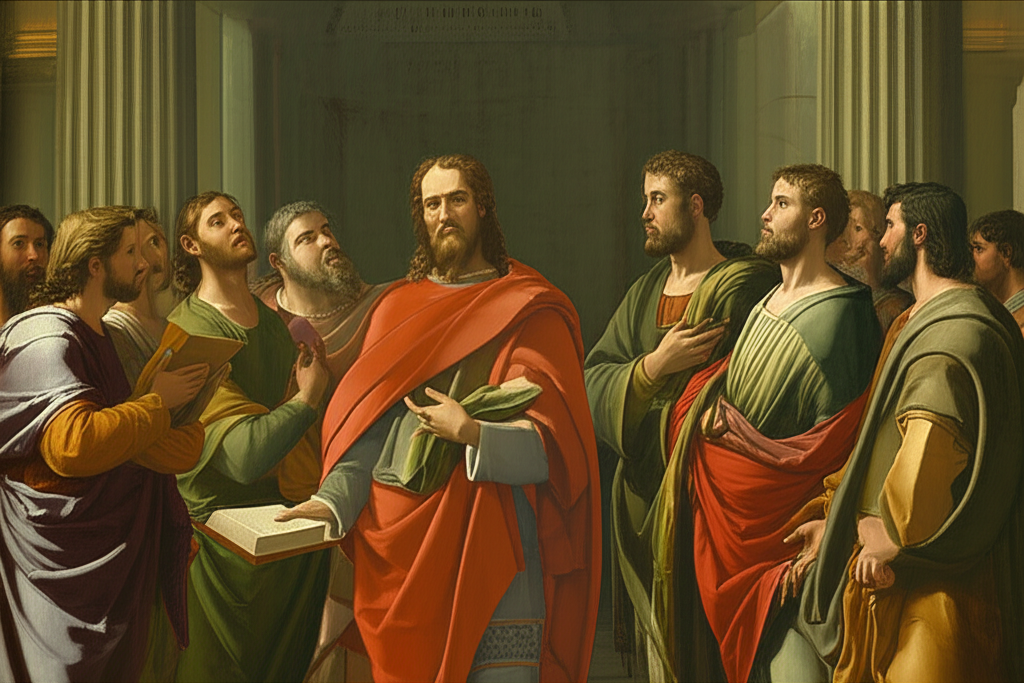
1 Chronicles chapter 23 kjv
- 1 So when David was old and full of days, he made Solomon his son king over Israel.
- 2 And he gathered together all the princes of Israel, with the priests and the Levites.
- 3 Now the Levites were numbered from the age of thirty years and upward: and their number by their polls, man by man, was thirty and eight thousand.
- 4 Of which, twenty and four thousand were to set forward the work of the house of the LORD; and six thousand were officers and judges:
- 5 Moreover four thousand were porters; and four thousand praised the LORD with the instruments which I made, said David, to praise therewith.
- 6 And David divided them into courses among the sons of Levi, namely, Gershon, Kohath, and Merari.
- 7 Of the Gershonites were, Laadan, and Shimei.
- 8 The sons of Laadan; the chief was Jehiel, and Zetham, and Joel, three.
- 9 The sons of Shimei; Shelomith, and Haziel, and Haran, three. These were the chief of the fathers of Laadan.
- 10 And the sons of Shimei were, Jahath, Zina, and Jeush, and Beriah. These four were the sons of Shimei.
- 11 And Jahath was the chief, and Zizah the second: but Jeush and Beriah had not many sons; therefore they were in one reckoning, according to their father's house.
- 12 The sons of Kohath; Amram, Izhar, Hebron, and Uzziel, four.
- 13 The sons of Amram; Aaron and Moses: and Aaron was separated, that he should sanctify the most holy things, he and his sons for ever, to burn incense before the LORD, to minister unto him, and to bless in his name for ever.
- 14 Now concerning Moses the man of God, his sons were named of the tribe of Levi.
- 15 The sons of Moses were, Gershom, and Eliezer.
- 16 Of the sons of Gershom, Shebuel was the chief.
- 17 And the sons of Eliezer were, Rehabiah the chief. And Eliezer had none other sons; but the sons of Rehabiah were very many.
- 18 Of the sons of Izhar; Shelomith the chief.
- 19 Of the sons of Hebron; Jeriah the first, Amariah the second, Jahaziel the third, and Jekameam the fourth.
- 20 Of the sons of Uzziel; Micah the first and Jesiah the second.
- 21 The sons of Merari; Mahli, and Mushi. The sons of Mahli; Eleazar, and Kish.
- 22 And Eleazar died, and had no sons, but daughters: and their brethren the sons of Kish took them.
- 23 The sons of Mushi; Mahli, and Eder, and Jeremoth, three.
- 24 These were the sons of Levi after the house of their fathers; even the chief of the fathers, as they were counted by number of names by their polls, that did the work for the service of the house of the LORD, from the age of twenty years and upward.
- 25 For David said, The LORD God of Israel hath given rest unto his people, that they may dwell in Jerusalem for ever:
- 26 And also unto the Levites; they shall no more carry the tabernacle, nor any vessels of it for the service thereof.
- 27 For by the last words of David the Levites were numbered from twenty years old and above:
- 28 Because their office was to wait on the sons of Aaron for the service of the house of the LORD, in the courts, and in the chambers, and in the purifying of all holy things, and the work of the service of the house of God;
- 29 Both for the shewbread, and for the fine flour for meat offering, and for the unleavened cakes, and for that which is baked in the pan, and for that which is fried, and for all manner of measure and size;
- 30 And to stand every morning to thank and praise the LORD, and likewise at even:
- 31 And to offer all burnt sacrifices unto the LORD in the sabbaths, in the new moons, and on the set feasts, by number, according to the order commanded unto them, continually before the LORD:
- 32 And that they should keep the charge of the tabernacle of the congregation, and the charge of the holy place, and the charge of the sons of Aaron their brethren, in the service of the house of the LORD.
1 Chronicles chapter 23 nkjv
- 1 So when David was old and full of days, he made his son Solomon king over Israel.
- 2 And he gathered together all the leaders of Israel, with the priests and the Levites.
- 3 Now the Levites were numbered from the age of thirty years and above; and the number of individual males was thirty-eight thousand.
- 4 Of these, twenty-four thousand were to look after the work of the house of the LORD, six thousand were officers and judges,
- 5 four thousand were gatekeepers, and four thousand praised the LORD with musical instruments, "which I made," said David, "for giving praise."
- 6 Also David separated them into divisions among the sons of Levi: Gershon, Kohath, and Merari.
- 7 Of the Gershonites: Laadan and Shimei.
- 8 The sons of Laadan: the first Jehiel, then Zetham and Joel?three in all.
- 9 The sons of Shimei: Shelomith, Haziel, and Haran?three in all. These were the heads of the fathers' houses of Laadan.
- 10 And the sons of Shimei: Jahath, Zina, Jeush, and Beriah. These were the four sons of Shimei.
- 11 Jahath was the first and Zizah the second. But Jeush and Beriah did not have many sons; therefore they were assigned as one father's house.
- 12 The sons of Kohath: Amram, Izhar, Hebron, and Uzziel?four in all.
- 13 The sons of Amram: Aaron and Moses; and Aaron was set apart, he and his sons forever, that he should sanctify the most holy things, to burn incense before the LORD, to minister to Him, and to give the blessing in His name forever.
- 14 Now the sons of Moses the man of God were reckoned to the tribe of Levi.
- 15 The sons of Moses were Gershon and Eliezer.
- 16 Of the sons of Gershon, Shebuel was the first.
- 17 Of the descendants of Eliezer, Rehabiah was the first. And Eliezer had no other sons, but the sons of Rehabiah were very many.
- 18 Of the sons of Izhar, Shelomith was the first.
- 19 Of the sons of Hebron, Jeriah was the first, Amariah the second, Jahaziel the third, and Jekameam the fourth.
- 20 Of the sons of Uzziel, Michah was the first and Jesshiah the second.
- 21 The sons of Merari were Mahli and Mushi. The sons of Mahli were Eleazar and Kish.
- 22 And Eleazar died, and had no sons, but only daughters; and their brethren, the sons of Kish, took them as wives.
- 23 The sons of Mushi were Mahli, Eder, and Jeremoth?three in all.
- 24 These were the sons of Levi by their fathers' houses?the heads of the fathers' houses as they were counted individually by the number of their names, who did the work for the service of the house of the LORD, from the age of twenty years and above.
- 25 For David said, "The LORD God of Israel has given rest to His people, that they may dwell in Jerusalem forever";
- 26 and also to the Levites, "They shall no longer carry the tabernacle, or any of the articles for its service."
- 27 For by the last words of David the Levites were numbered from twenty years old and above;
- 28 because their duty was to help the sons of Aaron in the service of the house of the LORD, in the courts and in the chambers, in the purifying of all holy things and the work of the service of the house of God,
- 29 both with the showbread and the fine flour for the grain offering, with the unleavened cakes and what is baked in the pan, with what is mixed and with all kinds of measures and sizes;
- 30 to stand every morning to thank and praise the LORD, and likewise at evening;
- 31 and at every presentation of a burnt offering to the LORD on the Sabbaths and on the New Moons and on the set feasts, by number according to the ordinance governing them, regularly before the LORD;
- 32 and that they should attend to the needs of the tabernacle of meeting, the needs of the holy place, and the needs of the sons of Aaron their brethren in the work of the house of the LORD.
1 Chronicles chapter 23 niv
- 1 When David was old and full of years, he made his son Solomon king over Israel.
- 2 He also gathered together all the leaders of Israel, as well as the priests and Levites.
- 3 The Levites thirty years old or more were counted, and the total number of men was thirty-eight thousand.
- 4 David said, "Of these, twenty-four thousand are to be in charge of the work of the temple of the LORD and six thousand are to be officials and judges.
- 5 Four thousand are to be gatekeepers and four thousand are to praise the LORD with the musical instruments I have provided for that purpose."
- 6 David separated the Levites into divisions corresponding to the sons of Levi: Gershon, Kohath and Merari.
- 7 Belonging to the Gershonites: Ladan and Shimei.
- 8 The sons of Ladan: Jehiel the first, Zetham and Joel?three in all.
- 9 The sons of Shimei: Shelomoth, Haziel and Haran?three in all. These were the heads of the families of Ladan.
- 10 And the sons of Shimei: Jahath, Ziza, Jeush and Beriah. These were the sons of Shimei?four in all.
- 11 Jahath was the first and Ziza the second, but Jeush and Beriah did not have many sons; so they were counted as one family with one assignment.
- 12 The sons of Kohath: Amram, Izhar, Hebron and Uzziel?four in all.
- 13 The sons of Amram: Aaron and Moses. Aaron was set apart, he and his descendants forever, to consecrate the most holy things, to offer sacrifices before the LORD, to minister before him and to pronounce blessings in his name forever.
- 14 The sons of Moses the man of God were counted as part of the tribe of Levi.
- 15 The sons of Moses: Gershom and Eliezer.
- 16 The descendants of Gershom: Shubael was the first.
- 17 The descendants of Eliezer: Rehabiah was the first. Eliezer had no other sons, but the sons of Rehabiah were very numerous.
- 18 The sons of Izhar: Shelomith was the first.
- 19 The sons of Hebron: Jeriah the first, Amariah the second, Jahaziel the third and Jekameam the fourth.
- 20 The sons of Uzziel: Micah the first and Ishiah the second.
- 21 The sons of Merari: Mahli and Mushi. The sons of Mahli: Eleazar and Kish.
- 22 Eleazar died without having sons: he had only daughters. Their cousins, the sons of Kish, married them.
- 23 The sons of Mushi: Mahli, Eder and Jerimoth?three in all.
- 24 These were the descendants of Levi by their families?the heads of families as they were registered under their names and counted individually, that is, the workers twenty years old or more who served in the temple of the LORD.
- 25 For David had said, "Since the LORD, the God of Israel, has granted rest to his people and has come to dwell in Jerusalem forever,
- 26 the Levites no longer need to carry the tabernacle or any of the articles used in its service."
- 27 According to the last instructions of David, the Levites were counted from those twenty years old or more.
- 28 The duty of the Levites was to help Aaron's descendants in the service of the temple of the LORD: to be in charge of the courtyards, the side rooms, the purification of all sacred things and the performance of other duties at the house of God.
- 29 They were in charge of the bread set out on the table, the special flour for the grain offerings, the thin loaves made without yeast, the baking and the mixing, and all measurements of quantity and size.
- 30 They were also to stand every morning to thank and praise the LORD. They were to do the same in the evening
- 31 and whenever burnt offerings were presented to the LORD on the Sabbaths, at the New Moon feasts and at the appointed festivals. They were to serve before the LORD regularly in the proper number and in the way prescribed for them.
- 32 And so the Levites carried out their responsibilities for the tent of meeting, for the Holy Place and, under their relatives the descendants of Aaron, for the service of the temple of the LORD.
1 Chronicles chapter 23 esv
- 1 When David was old and full of days, he made Solomon his son king over Israel.
- 2 David assembled all the leaders of Israel and the priests and the Levites.
- 3 The Levites, thirty years old and upward, were numbered, and the total was 38,000 men.
- 4 "Twenty-four thousand of these," David said, "shall have charge of the work in the house of the LORD, 6,000 shall be officers and judges,
- 5 4,000 gatekeepers, and 4,000 shall offer praises to the LORD with the instruments that I have made for praise."
- 6 And David organized them in divisions corresponding to the sons of Levi: Gershon, Kohath, and Merari.
- 7 The sons of Gershon were Ladan and Shimei.
- 8 The sons of Ladan: Jehiel the chief, and Zetham, and Joel, three.
- 9 The sons of Shimei: Shelomoth, Haziel, and Haran, three. These were the heads of the fathers' houses of Ladan.
- 10 And the sons of Shimei: Jahath, Zina, and Jeush and Beriah. These four were the sons of Shimei.
- 11 Jahath was the chief, and Zizah the second; but Jeush and Beriah did not have many sons, therefore they became counted as a single father's house.
- 12 The sons of Kohath: Amram, Izhar, Hebron, and Uzziel, four.
- 13 The sons of Amram: Aaron and Moses. Aaron was set apart to dedicate the most holy things, that he and his sons forever should make offerings before the LORD and minister to him and pronounce blessings in his name forever.
- 14 But the sons of Moses the man of God were named among the tribe of Levi.
- 15 The sons of Moses: Gershom and Eliezer.
- 16 The sons of Gershom: Shebuel the chief.
- 17 The sons of Eliezer: Rehabiah the chief. Eliezer had no other sons, but the sons of Rehabiah were very many.
- 18 The sons of Izhar: Shelomith the chief.
- 19 The sons of Hebron: Jeriah the chief, Amariah the second, Jahaziel the third, and Jekameam the fourth.
- 20 The sons of Uzziel: Micah the chief and Isshiah the second.
- 21 The sons of Merari: Mahli and Mushi. The sons of Mahli: Eleazar and Kish.
- 22 Eleazar died having no sons, but only daughters; their kinsmen, the sons of Kish, married them.
- 23 The sons of Mushi: Mahli, Eder, and Jeremoth, three.
- 24 These were the sons of Levi by their fathers' houses, the heads of fathers' houses as they were listed according to the number of the names of the individuals from twenty years old and upward who were to do the work for the service of the house of the LORD.
- 25 For David said, "The LORD, the God of Israel, has given rest to his people, and he dwells in Jerusalem forever.
- 26 And so the Levites no longer need to carry the tabernacle or any of the things for its service."
- 27 For by the last words of David the sons of Levi were numbered from twenty years old and upward.
- 28 For their duty was to assist the sons of Aaron for the service of the house of the LORD, having the care of the courts and the chambers, the cleansing of all that is holy, and any work for the service of the house of God.
- 29 Their duty was also to assist with the showbread, the flour for the grain offering, the wafers of unleavened bread, the baked offering, the offering mixed with oil, and all measures of quantity or size.
- 30 And they were to stand every morning, thanking and praising the LORD, and likewise at evening,
- 31 and whenever burnt offerings were offered to the LORD on Sabbaths, new moons, and feast days, according to the number required of them, regularly before the LORD.
- 32 Thus they were to keep charge of the tent of meeting and the sanctuary, and to attend the sons of Aaron, their brothers, for the service of the house of the LORD.
1 Chronicles chapter 23 nlt
- 1 When David was an old man, he appointed his son Solomon to be king over Israel.
- 2 David summoned all the leaders of Israel, together with the priests and Levites.
- 3 All the Levites who were thirty years old or older were counted, and the total came to 38,000.
- 4 Then David said, "From all the Levites, 24,000 will supervise the work at the Temple of the LORD. Another 6,000 will serve as officials and judges.
- 5 Another 4,000 will work as gatekeepers, and 4,000 will praise the LORD with the musical instruments I have made."
- 6 Then David divided the Levites into divisions named after the clans descended from the three sons of Levi ? Gershon, Kohath, and Merari.
- 7 The Gershonite family units were defined by their lines of descent from Libni and Shimei, the sons of Gershon.
- 8 Three of the descendants of Libni were Jehiel (the family leader), Zetham, and Joel.
- 9 These were the leaders of the family of Libni. Three of the descendants of Shimei were Shelomoth, Haziel, and Haran.
- 10 Four other descendants of Shimei were Jahath, Ziza, Jeush, and Beriah.
- 11 Jahath was the family leader, and Ziza was next. Jeush and Beriah were counted as a single family because neither had many sons.
- 12 Four of the descendants of Kohath were Amram, Izhar, Hebron, and Uzziel.
- 13 The sons of Amram were Aaron and Moses. Aaron and his descendants were set apart to dedicate the most holy things, to offer sacrifices in the LORD's presence, to serve the LORD, and to pronounce blessings in his name forever.
- 14 As for Moses, the man of God, his sons were included with the tribe of Levi.
- 15 The sons of Moses were Gershom and Eliezer.
- 16 The descendants of Gershom included Shebuel, the family leader.
- 17 Eliezer had only one son, Rehabiah, the family leader. Rehabiah had numerous descendants.
- 18 The descendants of Izhar included Shelomith, the family leader.
- 19 The descendants of Hebron included Jeriah (the family leader), Amariah (the second), Jahaziel (the third), and Jekameam (the fourth).
- 20 The descendants of Uzziel included Micah (the family leader) and Isshiah (the second).
- 21 The descendants of Merari included Mahli and Mushi. The sons of Mahli were Eleazar and Kish.
- 22 Eleazar died with no sons, only daughters. His daughters married their cousins, the sons of Kish.
- 23 Three of the descendants of Mushi were Mahli, Eder, and Jerimoth.
- 24 These were the descendants of Levi by clans, the leaders of their family groups, registered carefully by name. Each had to be twenty years old or older to qualify for service in the house of the LORD.
- 25 For David said, "The LORD, the God of Israel, has given us peace, and he will always live in Jerusalem.
- 26 Now the Levites will no longer need to carry the Tabernacle and its furnishings from place to place."
- 27 In accordance with David's final instructions, all the Levites twenty years old or older were registered for service.
- 28 The work of the Levites was to assist the priests, the descendants of Aaron, as they served at the house of the LORD. They also took care of the courtyards and side rooms, helped perform the ceremonies of purification, and served in many other ways in the house of God.
- 29 They were in charge of the sacred bread that was set out on the table, the choice flour for the grain offerings, the wafers made without yeast, the cakes cooked in olive oil, and the other mixed breads. They were also responsible to check all the weights and measures.
- 30 And each morning and evening they stood before the LORD to sing songs of thanks and praise to him.
- 31 They assisted with the burnt offerings that were presented to the LORD on Sabbath days, at new moon celebrations, and at all the appointed festivals. The required number of Levites served in the LORD's presence at all times, following all the procedures they had been given.
- 32 And so, under the supervision of the priests, the Levites watched over the Tabernacle and the Temple and faithfully carried out their duties of service at the house of the LORD.
- Bible Book of 1 Chronicles
- 1 Adam to Noah and Abraham
- 2 Lineage of King David Tribe of Judah
- 3 King David Children
- 4 Descendants of Judah
- 5 Descendants of Reuben
- 6 Sons of Levi The Priestly Line
- 7 Descendants of Issachar
- 8 A Genealogy of Saul
- 9 A Genealogy of the Returned Exiles
- 10 The Death of King Saul
- 11 David Anointed King
- 12 The Mighty Men Join David
- 13 The Ark Brought from Kiriath-Jearim
- 14 David's Wives and Children
- 15 The Ark Brought to Jerusalem
- 16 The Ark Placed in a Tent
- 17 The Lord's Covenant with David
- 18 David Defeats His Enemies
- 19 The Ammonites Disgrace David's Men
- 20 The Capture of Rabbah
- 21 David's Census Brings Pestilence
- 22 David Prepares for Temple Building
- 23 David Organizes the Levites
- 24 24 Courses of Priests
- 25 David Organizes the Musicians
- 26 Divisions of the Gatekeepers
- 27 Military Divisions
- 28 David's Charge to Israel
- 29 Offerings for the Temple